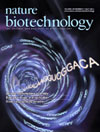Teresa Riera Madurell, member of the European Parliament from Spain, was appointed last month as the rapporteur responsible for establishing Horizon 2020, the next European Union (EU) research-funding programme that will run during 2014–20. The former computer scientist leads five other parliamentary rapporteurs who, over the next year, will craft four legislative documents that will dictate the structure of Horizon 2020 and related European research initiatives. She tells Nature how she hopes the programme will develop.
Tag Archives: Policy
Spanish researchers petition for taxpayer donations
Spanish scientists have collected more than 32,000 signatures in less than a week in support of a petition that urges Spain’s tax authority to adopt a novel way of raising funds for research: adding a checkbox to income tax forms that would allow taxpayers to direct 0.7% of their contribution to science. Continue reading Spanish researchers petition for taxpayer donations
Spanish institute faces cash crisis
A flagship biomedical research facility in Valencia, built during the heady days of the last economic boom, is now going bust. It is a casualty of Spain’s deep spending cuts and, some say, of poor management.
The Prince Felipe Research Centre (CIPF), which hosts 260 scientists and has produced high-profile publications in regenerative medicine and biochemistry, announced an emergency financial plan on 19 October that would see about 100 research staff lose their jobs, and roughly halve salaries for those who remain. Continue reading Spanish institute faces cash crisis
New self-reporting for GM crops
 Companies seeking approval for new biotech crops can now prepare their own environmental study or hire an outside contractor to do so. The new options, announced by the US Department of Agriculture’s Animal and Plant Health Inspection Service (APHIS) in April, are part of a two-year voluntary pilot program designed to speed up document preparation, although critics argue such self-reporting is inevitably biased. Currently, genetically modified (GM) crops can take years to approve, as the agency faces a backlog of nearly two dozen petitions, according to APHIS deputy administrator Michael Gregoire. Before a crop can be deregulated, the law requires a preliminary environmental study, followed by a more comprehensive environmental assessment conducted by APHIS (the regulatory arm of the US Department of Agriculture (USDA). The environmental assessment costs the petitioner $75,000–$100,000, although the USDA may decide a crop warrants a more detailed environmental impact statement, which can cost over a million dollars. Continue reading New self-reporting for GM crops
Companies seeking approval for new biotech crops can now prepare their own environmental study or hire an outside contractor to do so. The new options, announced by the US Department of Agriculture’s Animal and Plant Health Inspection Service (APHIS) in April, are part of a two-year voluntary pilot program designed to speed up document preparation, although critics argue such self-reporting is inevitably biased. Currently, genetically modified (GM) crops can take years to approve, as the agency faces a backlog of nearly two dozen petitions, according to APHIS deputy administrator Michael Gregoire. Before a crop can be deregulated, the law requires a preliminary environmental study, followed by a more comprehensive environmental assessment conducted by APHIS (the regulatory arm of the US Department of Agriculture (USDA). The environmental assessment costs the petitioner $75,000–$100,000, although the USDA may decide a crop warrants a more detailed environmental impact statement, which can cost over a million dollars. Continue reading New self-reporting for GM crops